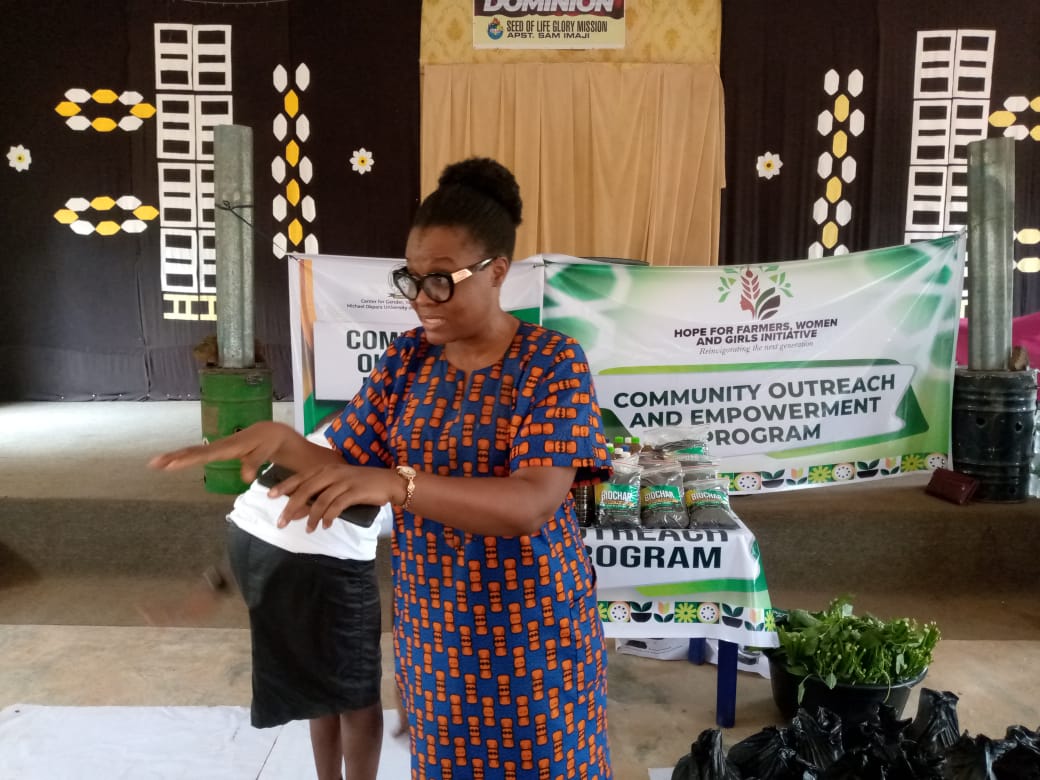The Deputy Dean, College of Agricultural Economics, Rural Sociology and Extension, (CAERSE), Michael Okpara University of Agriculture Umudike (MOUAU), Abia State, Dr. Blessing Ada Ahamefule, has advocated for sustainable agriculture and environmental resilience, highlighting organic farming as a vital tool in the fight against food insecurity and climate change in Nigeria and beyond.
The Agricultural expert who disclosed this during a community service outreach at Umudike, Ikwuano Local Government Area (LGA), Abia State recently, decried the disruption of microbial ecosystems, ammonia emissions among other biodiversity loss due to indiscriminate use of chemical fertilizers.

She emphasized that conventional farming practices have contributed significantly to environmental degradation, soil depletion, and reduced food quality, asserting that a shift toward organic agriculture could reverse these trends while ensuring long-term food security.
In her words: “Organic farming is not just an agricultural method—it is a holistic system that respects natural cycles, reduces reliance on harmful chemicals, and promotes biodiversity.
“By investing in organic practices, we are addressing two of the greatest challenges of our time: feeding our growing population and protecting our environment.”







Dr. Ahamefule noted that organic farming minimizes carbon emissions through reduced use of synthetic fertilizers and pesticides, while improving soil health and water retention—key factors in climate adaptation.
The scholar who noted that the consumption of organic farm produce has no health risk, further identified other effects of indiscriminate use of chemical fertilizers to include; water contamination, nutrients imbalance, plant toxicity, reduced crop resilience, cancer risk, methemoglobinemia (blue baby syndrome), endocrine disruption among others.
Dr. Ahamefule who further urged the rural women to mitigate these negative effects by adopting sustainable agricultural practices, also called on policymakers, development agencies, and private sector players to support training, certification, and market access for organic farmers.
She said: “Our future depends on how we treat the soil beneath our feet and the food we put on our tables. It’s time for a radical but achievable transformation – starting with organic farming.”
In a vote of thanks, Mrs. Nwadinobi Adanma, on behalf of Umudike and Umudike Ukwu communities, thanked Dr. Ahamefule for sharing her research findings with them.
They promised to make utmost use of the resources gained in the outreach, while praying God to bless her abundantly.
The event featured an interactive session and distribution of free farm inputs and food palliatives to rural women.

























